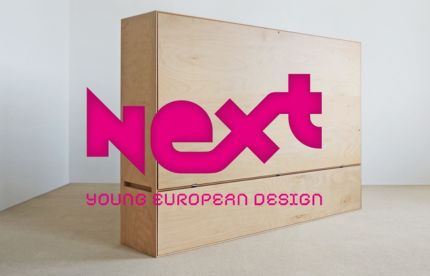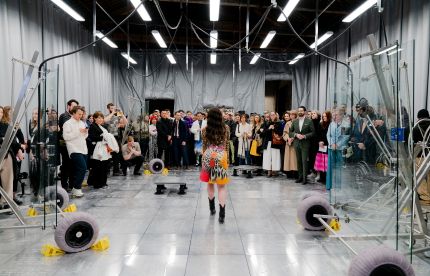Fábio Godinho, GLEN network grant laureate

GLEN (Great Little European Network) connects the smallest countries of Europe (Estonia, Latvia, Lithuania, Iceland, Luxembourg, Slovenia, Kosovo, Malta) through common networking and training programmes with the objective to contribute to designing more meaningful practices and more sustainable performing arts sectors in the concerned countries, interconnecting them and taking a prominent place on the international scene. The network aims to be an incubator for those who, while benefiting from a local anchorage, ambition to develop their practice internationally.
Following a call for applications, the Luxembourg laureate of this first edition is Fábio Godinho. Until June 2024, he will benefit from three activity programs implemented by the network, including
- Networking events in Riga (Latvia) from 1st to 4th of November and in in Tartu (Estonia) in early May 2024;
- Critical friendships : peer matching across partner countries with other grantees or third professionals to provide mutual support and understanding of each other’s context;
- Webinars : addressing the specificities of producing and distributing in small countries and advising on how to develop internationally from there.
For Fábio Godinho, joining this network is an opportunity to “confront countries that have the same problems as Luxembourg. Countries that certainly have a wide range of cultural offerings, talented players in the field and things to claim, but which are up against these major cultural countries [editor’s note: France, Germany, Portugal and Belgium, with whom he has had the opportunity to work].
In dance, we are lucky enough to be able to use the body, which is a universal language that allows us to show our creations all over the world. Theatre is confronted with language, which requires the logistics of subtitling or the creation of something much more elaborate. This sometimes makes distribution more difficult, if not impossible. How do you make a show in French, Luxembourgish or German, created in Luxembourg, more visible internationally, in countries that don’t speak these languages?
I’d be interested to learn about the different ways of creating in these countries […] and to see the themes that are developed there. I’ve also been working for some years on the question of borders and languages, and I’m intrigued to see the ways of creating in languages that we, here in Luxembourg, are rarely confronted with in performative culture. I draw inspiration from all the experiences I have and the people I meet, and this network would enable me to accentuate the search for new ideas that I carry out in each of my creations.“


